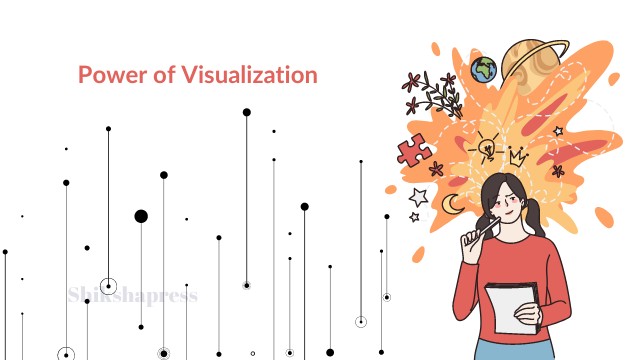5 Proven Mathematics Techniques That Will Help You in Exams
Mathematics often sends a chill down many spines. Images of tangled equations and complex problems flash before our eyes, making us question, why is math so intimidating?
Let’s debunk this myth and share a secret: there is no “math gene.” With scientifically-proven techniques, anyone can become a math wiz. let’s read HOW TO OVERCOME YOUR FEAR OF MATHEMATICS – 5 Simple and Best Strategies
The Myth of the “Math Gene”
There exists a term called Mathophobia, which describes the fear, stress, and anxiety faced by students studying math. Surprisingly, MRI scans of students showed their brain reactions to math problems were similar to facing fears like snakes or spiders.
Why Students Have Mathophobia, Fear of Maths and Math Anxiety?
Mathophobia, commonly referred to as “math anxiety,” is a genuine concern for many students worldwide. Several factors contribute to this anxiety:
Negative Past Experiences: A poor foundation or a previous bad experience of kids, such as humiliation in front of peers or struggles with a particular topic, can lead to lasting mathematics subject anxiety.
Societal Beliefs: Society often portrays math as a difficult subject. Over time, these stereotypes can convince students that it’s acceptable or even expected to struggle with or dislike math.
Fixed Mindset: Some students believe they are “not math people,” adhering to the misconception that math ability is innate and can’t be developed.
Pressure and Fear of Failure: High-stakes testing and the emphasis on grades can make students anxious. The fear of making mistakes, being judged, or failing can overshadow the learning process.
Abstract Nature of the Subject: Unlike other subjects that have more tangible or relatable contexts, mathematics can sometimes be abstract, making it challenging for some students to grasp.
Teaching Methodology: Traditional teaching methods that focus on rote learning rather than understanding can be daunting. If students don’t understand the “why” behind a concept, they might find it hard to remember or apply it.
Parental Attitudes: Parents who communicate their own fears or negative feelings about math can inadvertently transfer these feelings to their children.
Lack of Relevance: Students sometimes don’t see the practical application of what they’re learning, leading to the question, “When will I ever use this?” This can diminish their motivation.
Speed Over Mastery: In some educational settings, there’s an emphasis on speed. Students who think more slowly or deeply might feel they’re not good at math because they’re not fast enough, even if their understanding is profound.
Lack of Resources: Not having access to proper resources, such as tutors, study materials, or supportive environments, can further exacerbate math-related frustrations.
Addressing mathophobia requires a combination of positive experiences, growth mindset encouragement, supportive teaching methods, and resources that cater to individual learning styles.
But fear not, extensive research assures that anyone can excel in math.
Let’s dive into some powerful techniques that can guide you.
The Flashlight Modes
Barbara Oakley, in her enlightening book A Mind for Numbers, introduces the concept of flashlight modes. She explains:
1. Focused Mode: This is when you zero in on a specific set of information. Vital for practicing known concepts and problem solving.
2. Diffused Mode: Think of it as letting your mind wander, gaining fresh insights into a problem or understanding something novel.
3. Sleep Mode: As pivotal as practice is, sleep is fundamental to bolster our brainpower.
For example, you might easily spot spelling errors in a sentence using the focused mode, but it’s the diffused mode that helps identify deeper logical errors.
The Power of Visualization

Visual aids can work wonders. Stanford researcher, Joe Bowler, found that while studying math, two out of five engaged brain pathways were visual. So, next time you’re wrestling with a math problem, sketching a diagram or chart might just simplify things.
Deep Practice in Mathematics
Einstein once quoted, “Not that I’m so smart, it’s just that I’d stay with the problem longer.” This highlights the importance of deep practice. Math is less about speed and more about understanding.
True problem-solving involves trial, error, and persistent effort. Embrace your mistakes and learn from them for a robust understanding.
Mathematics Exam Strategies
Navigating math exams requires some tact. Here are three quick-fire strategies:
- Glance over the hardest problem first, then tackle easier ones.
- Always read questions twice and pen down key details.
- While revising, shuffle the sequence to spot errors.
Applying Math to Real-life
A common grievance is, “Why learn math when it’s not applicable in daily life?” This couldn’t be further from the truth. Mathematics finds its roots in numerous real-world scenarios. For instance, the regression effect can explain phenomena like why a sequel might not be as successful as an original blockbuster movie.
Bonus Tips to Up Your Math Game
- Websites like Wolfram Alpha and Symbolab offer step-by-step problem solutions. However, ensure you’ve tried solving it yourself first.
- Review questions you previously got wrong before exams.
- Mark questions you found challenging for efficient revision later.
Take Away Tips for Mathematics
- Balance between focused, diffused, and sleep modes.
- Visualize problems to understand better.
- Embrace deep practice; it’s not about speed, but understanding.
- Apply clever exam strategies.
- See the real-world applications of math to make it interesting.
In conclusion, as the brilliant Stephen Hawking said, “No matter how difficult life may seem, there is always something that we can pick up and succeed at.” With these strategies, we hope mathematics becomes that ‘something’ for you. Happy calculating! Stay Blessed
CBSE Sample Papers | CBSE Circulars | Quizzes | Study Material
Click Here to Join our Premium Telegram for More News and Updates.
For the Latest Educational News (CBSE, ICSE, and State Board News) and live news updates, like us on Facebook or follow us on Twitter and Join our Premium Telegram Channel. Read more on Latest Exams & Results News on Shikshapress.com.

